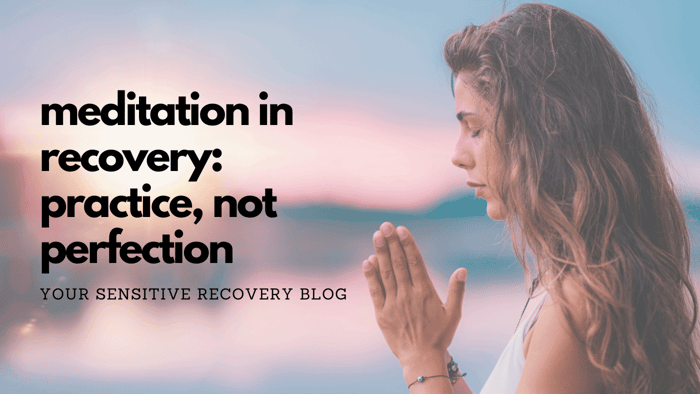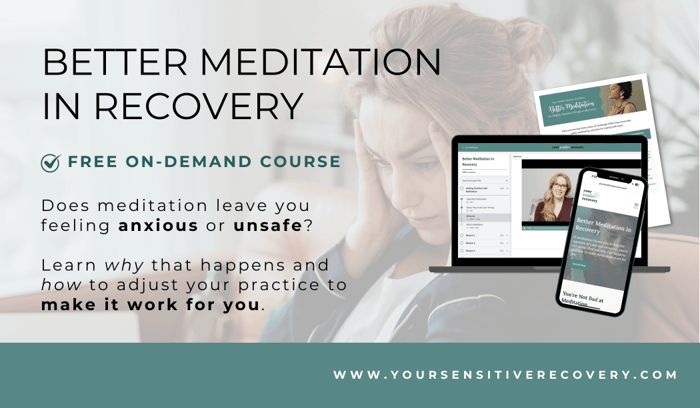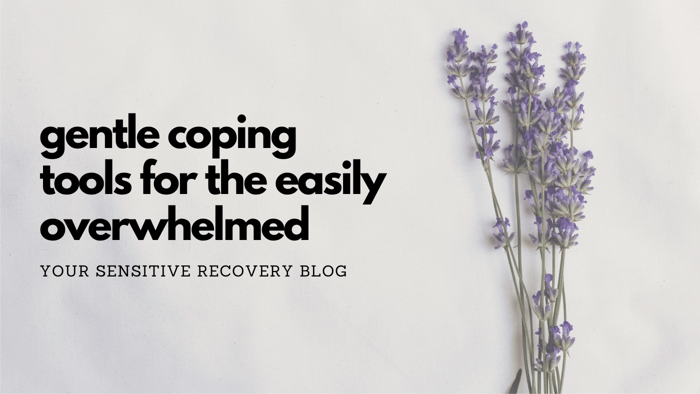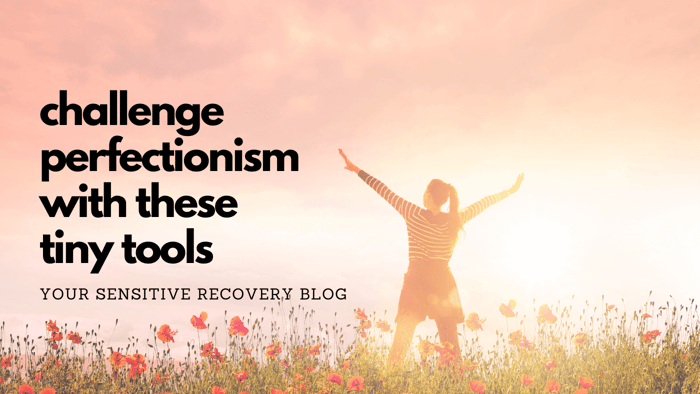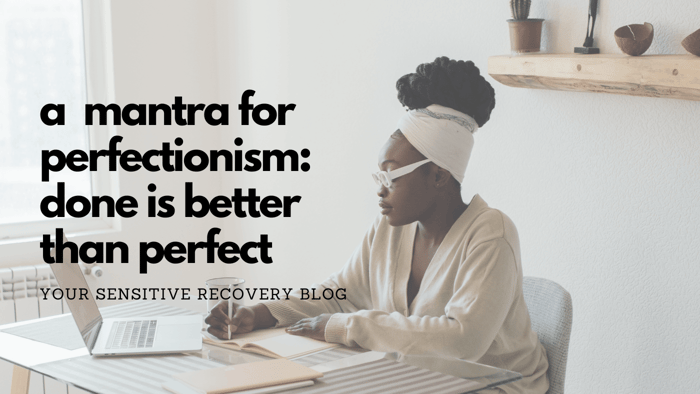If you’ve ever crossed your legs, closed your eyes, and taken a deep breath...only to sigh in frustration mere moments later, you’re not alone. For some of us with (ahem) perfectionistic tendencies, the pressure to do everything "right” can sneak into every corner of our lives, including the practice of meditation. Oddly enough, meditation is about the exact opposite, and it can actually help unhook you from the drive for perfectionism that could be keeping you stuck in your recovery process.
I'm a recovering perfectionist myself and have learned a thing or two about it 💀 In this post, I'm exploring how meditation can help you break free from perfectionism and empower your healing.
The Pressure to Heal “The Right Way”
If you’re a perfectionist and in recovery, you know what it’s like to hold yourself to an impossibly high standard. You worry you’re not doing enough. You ruminate on what others are thinking about you. Or you imagine that if you could just get it right, everything else would finally fall into place.
This kind of self-induced pressure is incredibly common and incredibly exhausting. It comes from a valid, completely understandable desire to feel safe, accepted, and in control.
But here’s the thing: true recovery is not something you can perform or be the best at. It’s a process of awareness, acceptance, and small, incremental shifts.And that's why meditation can offer just the thing you need to break out of a recovery rut.
How Perfectionism Keeps You Stuck
Perfectionism shows up not only as high standards but also as terror at the thought of failing or disappointing others, and chronic self-criticism. It convinces you that your worth depends on how much you're doing, and how well you're doing it all. I’ve seen this happen again and again with my clients: they dive into recovery with the best intentions, but then are quickly overwhelmed by the desire to be "the perfect patient."
Highly Sensitive People may be especially vulnerable to perfectionism. We tend to internalize feedback very deeply, worry about getting things wrong, and pick up on unspoken expectations others may not even be aware of.
Recovery is a hard process, and perfectionism offers an enticing yet false path to getting through it as quickly as possible.
But perfectionism doesn’t create peace. It creates more pressure. And when that pressure builds, many people find themselves giving up on recovery altogether.
Meditation: The Other Path
At its core, meditation is the practice of being with yourself in the present moment, exactly as you are. There’s no measuring stick, no grade, and no “wrong” way to do it. (Although I like to jokingly say that the only way to do it wrong is to worry about doing it wrong.) You’re allowed to show up distracted and all over the place. You’re allowed to struggle through it. You’re allowed to try and try again. Over and over. You're allowed to just practice.
This is why meditation can be so transformative for perfectionists navigating recovery. It’s not about emptying your mind or achieving zen, although that sure sounds nice, right?
It’s about pausing long enough to notice: What’s happening inside right now? And can I meet it and allow it to be there, with just a little more compassion and understanding than before?
Even when the answer is no, guess what - you’re still practicing. Even when your mind races, or your feet start tingling (🙋♀️), or you unconsciously pick up your phone and start scrolling two minutes in...
You’re still practicing. And every one of those moments chips away at perfectionism.
Here are some more examples of "perfectly imperfect" meditation:
- Setting a timer for 10 minutes and fidgeting the entire time.
- Beginning to cry during a body scan because it brings up grief.
- Listening to a guided meditation and falling asleep.
- Setting a goal to meditate every day for a week, falling off on day 4, but continuing anyway.
The point isn’t to “do it well.” The point is to keep showing up, without judgment, and with the willingness to try again. And again. The willingness is where the healing happens.
Need Support With Your Practice?
It's pretty common to think that meditation "doesn't work" for you or that you "aren't good at it." It's another thing, however, if this stems from meditation that leaves you feeling genuinely unsafe or anxious. If this sounds like you, you’re not broken, and you’re not alone.
That’s why I created my course, Better Meditation in Recovery. It’s designed specifically for sensitive souls who want to meditate, but find it wildly uncomfortable. Inside the course, I walk you through the 3 biggest obstacles HSPs face with meditation and offer gentle, actionable ways to work through each.
And now, the course is available on a pay-what-you-can basis, as low as $0, because I believe recovery should be accessible to everybody. ⬇
Om.
Every time you resist the urge to hustle for your worth, you’re healing. Every time you choose compassion over criticism and judgment, you’re healing. Every time you meditate without striving for some non-existent gold star, you’re healing.
The more we practice the kind of quiet, imperfect presence, the more we create space in our body and mind for real recovery to take root.
Remember, meditation is not about wrestling your mind into submission. It’s about making room for all of you, in the present moment. And that includes the messy, sensitive, perfection-driven parts too.
So if you try to meditate today and it’s clunky or chaotic or short-lived…that’s still a win. You showed up. You practiced. You did enough.
And when it comes to recovery, that’s everything.
💕🧘♀️
✨ Josie Munroe, LMFT is a licensed therapist and owner of JosieMunroe.com and Your Sensitive Recovery. As a recovered clinician and Highly Sensitive Person, she loves supporting others on their journeys to form new, empowered relationships with food, their bodies, and their sensitivity. Join the newsletter for a weekly boost of hope and inspiration. You deserve a recovery that works for you! ✨

